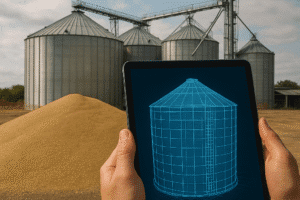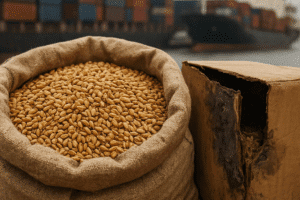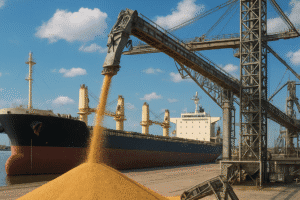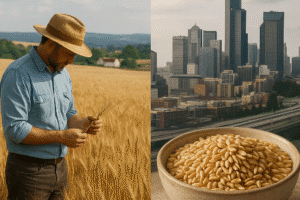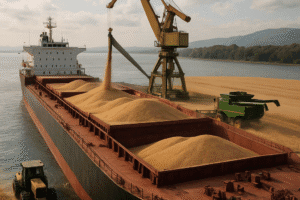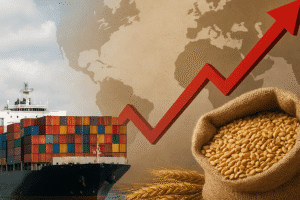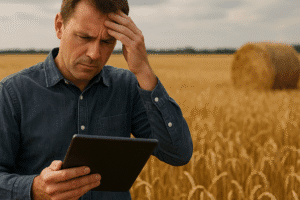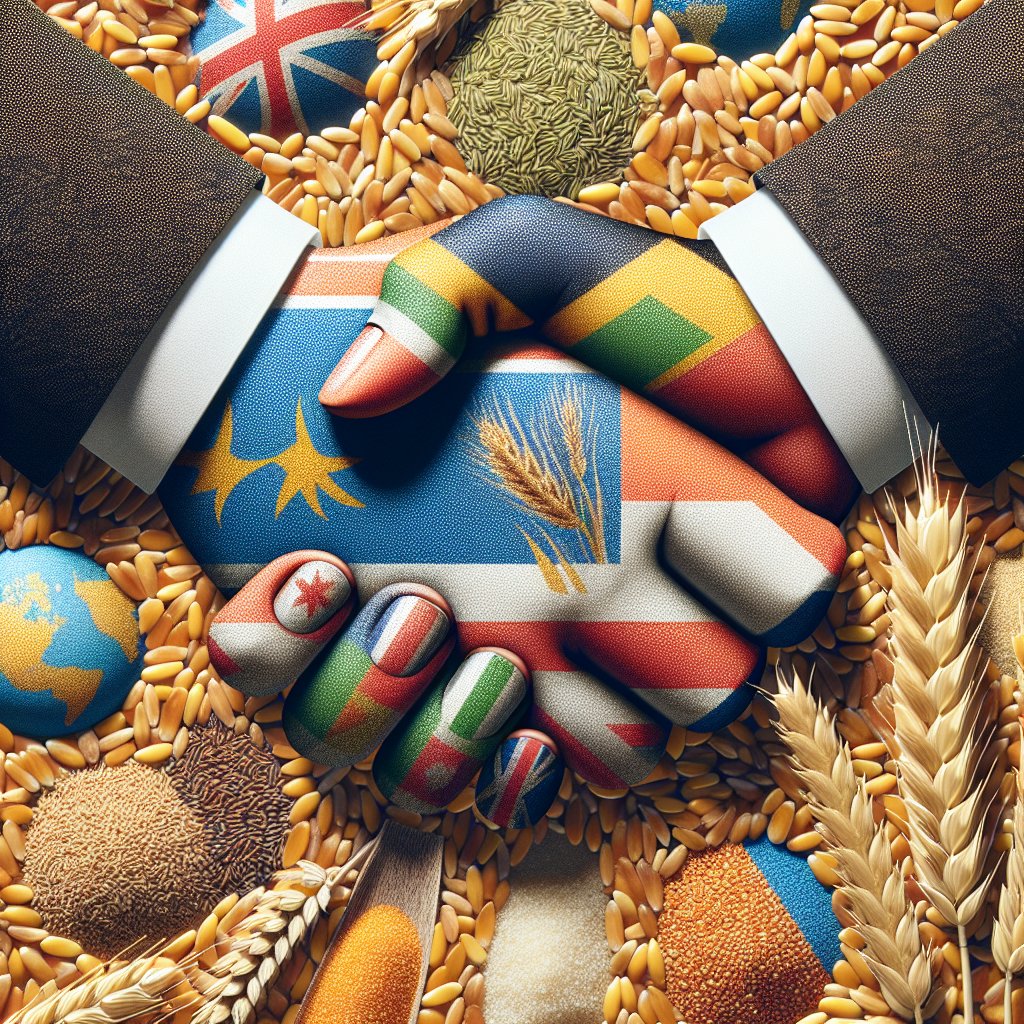Grain has long been a fundamental component of human civilization, serving not only as a staple food source but also as a powerful tool for international diplomacy. The intricate relationship between grain production, trade, and geopolitical dynamics has shaped nations’ interactions throughout history. This article explores the multifaceted role of grain in diplomacy, examining its historical significance, contemporary implications, and the challenges and opportunities it presents in the global arena.
The Historical Significance of Grain in Diplomacy
Throughout history, grain has been a vital resource that has influenced the rise and fall of empires, shaped trade routes, and fostered alliances. The cultivation and distribution of grain have often been at the center of political power struggles, as nations sought to secure their food supply and economic stability.
Ancient Civilizations and Grain Trade
In ancient civilizations, such as Mesopotamia and Egypt, grain was not only a dietary staple but also a form of currency. The ability to produce and store grain determined a society’s wealth and power. For instance, the Nile River’s annual flooding allowed Egyptians to cultivate vast amounts of grain, which they traded with neighboring regions, establishing economic ties and diplomatic relations.
Similarly, the Silk Road facilitated the exchange of grain and other commodities between East and West, fostering cultural and political connections. The trade of grain was often accompanied by treaties and agreements that solidified alliances and ensured mutual benefits. These early examples illustrate how grain served as a diplomatic tool, enabling nations to negotiate and maintain peace through economic interdependence.
Grain as a Weapon of War
While grain has often been a means of fostering diplomacy, it has also been used as a weapon in times of conflict. Control over grain supplies has been a strategic objective in warfare, as starving an enemy can weaken their resolve and lead to victory. Historical instances, such as the Roman siege of Carthage, demonstrate how the disruption of grain supplies can cripple a nation’s ability to sustain itself.
In more recent history, during World War II, grain shortages were weaponized as countries sought to undermine their adversaries. The manipulation of grain supplies became a tactic to exert pressure and influence, showcasing the dual nature of grain as both a diplomatic tool and a means of coercion.
Contemporary Implications of Grain in Global Diplomacy
In the modern world, the significance of grain in international relations has evolved, yet it remains a critical factor in diplomacy. The globalization of trade, coupled with the challenges posed by climate change and geopolitical tensions, has transformed the landscape of grain production and distribution.
Global Trade and Food Security
The global grain market is a complex web of interdependencies, where countries rely on each other for food security. Major grain-producing nations, such as the United States, Russia, and Brazil, play pivotal roles in shaping global food supply chains. Diplomatic relations between these countries can significantly impact grain prices and availability, affecting nations that depend on imports.
Food security has become a pressing issue, particularly in developing countries that are vulnerable to fluctuations in grain prices. Diplomatic efforts to ensure stable grain supplies have led to international agreements and collaborations aimed at addressing food insecurity. Initiatives such as the Food and Agriculture Organization (FAO) and the World Food Programme (WFP) exemplify how grain diplomacy is being utilized to combat hunger and promote stability.
Climate Change and Its Impact on Grain Production
Climate change poses significant challenges to grain production, affecting yields and threatening food security worldwide. As extreme weather events become more frequent, the stability of grain supplies is jeopardized, leading to potential diplomatic tensions. Countries that experience crop failures may seek to secure grain from other nations, leading to competition and conflict over resources.
In response to these challenges, nations are increasingly engaging in diplomatic dialogues focused on sustainable agricultural practices and climate resilience. Collaborative efforts to address the impacts of climate change on grain production can foster stronger international relations and promote shared goals of food security and environmental sustainability.
The Future of Grain in International Diplomacy
As the world continues to grapple with the complexities of globalization, climate change, and geopolitical tensions, the role of grain in international diplomacy will undoubtedly evolve. The interplay between food security, trade policies, and diplomatic relations will shape the future of grain as a tool for fostering cooperation and addressing global challenges.
Technological Innovations and Agricultural Diplomacy
Advancements in agricultural technology, such as genetically modified organisms (GMOs) and precision farming, have the potential to revolutionize grain production. These innovations can enhance yields, reduce environmental impacts, and improve food security. However, they also raise ethical and regulatory questions that can complicate international relations.
Countries that embrace technological advancements in agriculture may find themselves at the forefront of global grain production, while those that resist may face challenges in maintaining food security. Diplomatic negotiations surrounding agricultural technology will be crucial in determining how nations collaborate to address food production challenges and ensure equitable access to resources.
Geopolitical Tensions and Grain Supply Chains
Geopolitical tensions, such as trade wars and sanctions, can disrupt grain supply chains and impact global food security. Nations may leverage their grain production capabilities as a bargaining chip in diplomatic negotiations, leading to potential conflicts over access to resources. The interconnectedness of global markets means that disruptions in one region can have far-reaching consequences, underscoring the importance of diplomatic engagement in maintaining stable grain supplies.
As countries navigate these complexities, the need for multilateral cooperation and dialogue will be paramount. International organizations and forums will play a critical role in facilitating discussions on grain trade, food security, and sustainable agricultural practices, fostering a collaborative approach to addressing global challenges.
Conclusion
Grain has served as a powerful tool for international diplomacy throughout history, shaping the dynamics of trade, alliances, and conflicts. In the contemporary world, the significance of grain continues to evolve, influenced by globalization, climate change, and geopolitical tensions. As nations grapple with the challenges of food security and sustainable agriculture, the role of grain in diplomacy will remain crucial in fostering cooperation and addressing global issues. The future of grain as a diplomatic tool will depend on the ability of nations to collaborate, innovate, and navigate the complexities of an interconnected world.
